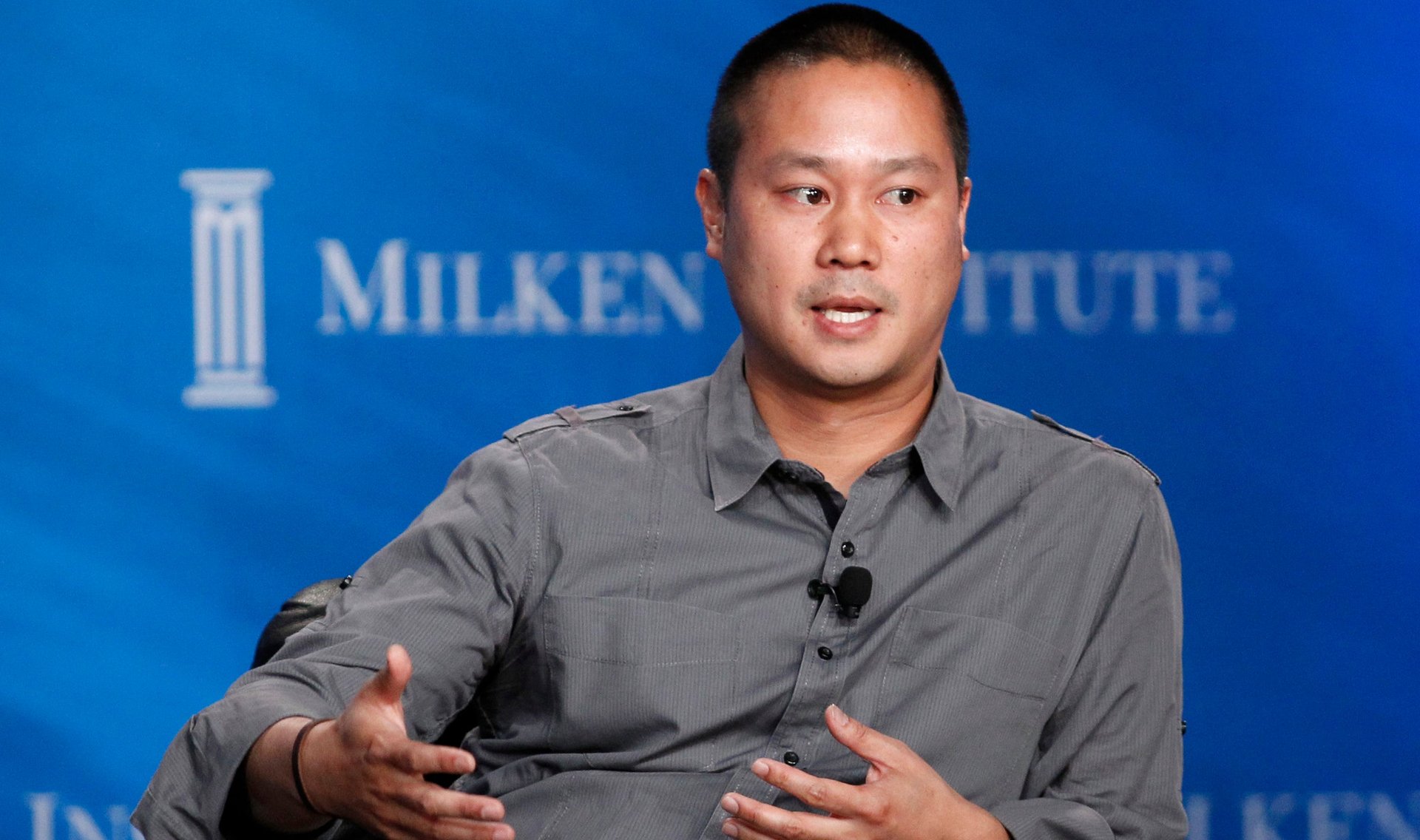Tony Hsieh’s big Zappos management experiment looks increasingly troubled
In late March, Zappos CEO Tony Hsieh wrote an extremely long memo detailing how the company’s shift to an open management philosophy called holacracy wasn’t happening rapidly enough:


In late March, Zappos CEO Tony Hsieh wrote an extremely long memo detailing how the company’s shift to an open management philosophy called holacracy wasn’t happening rapidly enough:
We’ve been operating partially under Holacracy and partially under the legacy management hierarchy in parallel for over a year now. Having one foot in one world while having the other foot in the other world has slowed down our transformation towards self-management and self-organization.
….After many conversations and a lot of feedback about where we are today versus our desired state of self-organization, self-management, increased autonomy, and increased efficiency, we are going to take a “rip the bandaid” approach to accelerate progress towards becoming a Teal organization (as described in the book Reinventing Organizations).
He gave an ultimatum: Commit to the experiment fully by April 30th, or accept a three month severance package and leave.
As of that date, there would effectively no longer be anyone at the company whose job was specifically to manage others. 210 people, 14% of the company, took the buyout, leading many to conclude that the transition wasn’t going over particularly well.
Speaking to Rachel Silverman at the Wall Street Journal (paywall), Hsieh defended the company’s experiment.
“Another way to look at it is that 86% of employees chose to walk away from the ‘easy money’ and stay with the company,” he told her. He adds that it could take two-to-five years to make the transition, and that the process “takes time and a lot of trial and error.”
Holacracy is a system that encourages self management, where classic team and hierarchy structures are replaced with more loosely defined “circles,” and employees largely control how they do their work themselves.
In practice, a lot of people feel unsettled at Zappos. The original employee in charge of the transition left some time ago, as did other employees, well before the buyout offer.
The training and transition to holacracy eat up large amounts of time (paywall). Former managers are concerned about transitioning to new work, as it’s not clear what exactly they’ll do. Others worry about the impact on their compensation and career advancement.
Employees complain about middle management finding a way to rise anyway, and a grueling and lengthy meeting process.
Hsieh is urging time and patience, but the way he’s acting runs counter to that, and is contributing to the difficulty of making the transition, believes Daniel Tenner, a CEO who adopted an open culture on a smaller scale at his company GrantTree.
In a lengthy open letter last week, he argued that Hsieh took the wrong approach with that memo:
The message in the memo, “get on board with Holacracy now or leave,” broadcast to the entire company and to the world at large, does not seem respectful of individual differences. Instead, it seems hostile to individuality, trying to cut everyone into the same mould without respecting, or even listening to, or acknowledging their differences. Starting from this premise, it can only alienate people and cause them, even if they were ready to progress to a better perspective, to regress back to a “me vs. them” point of view which is toxic to Holacracy and any open culture agenda.
An open organization is predicated on trust, patience, and respecting individuals, Tenner writes. He also suggests that imposing self-management top down in an authoritative way, as Hsieh seems to be doing with the memo, on 1,400 people that may not want or understand it is going to be incredibly challenging.
Hsieh is clearly very committed to this project. But his insistence and eagerness might be undermining it. Perhaps his call for patience should first be extended to himself.